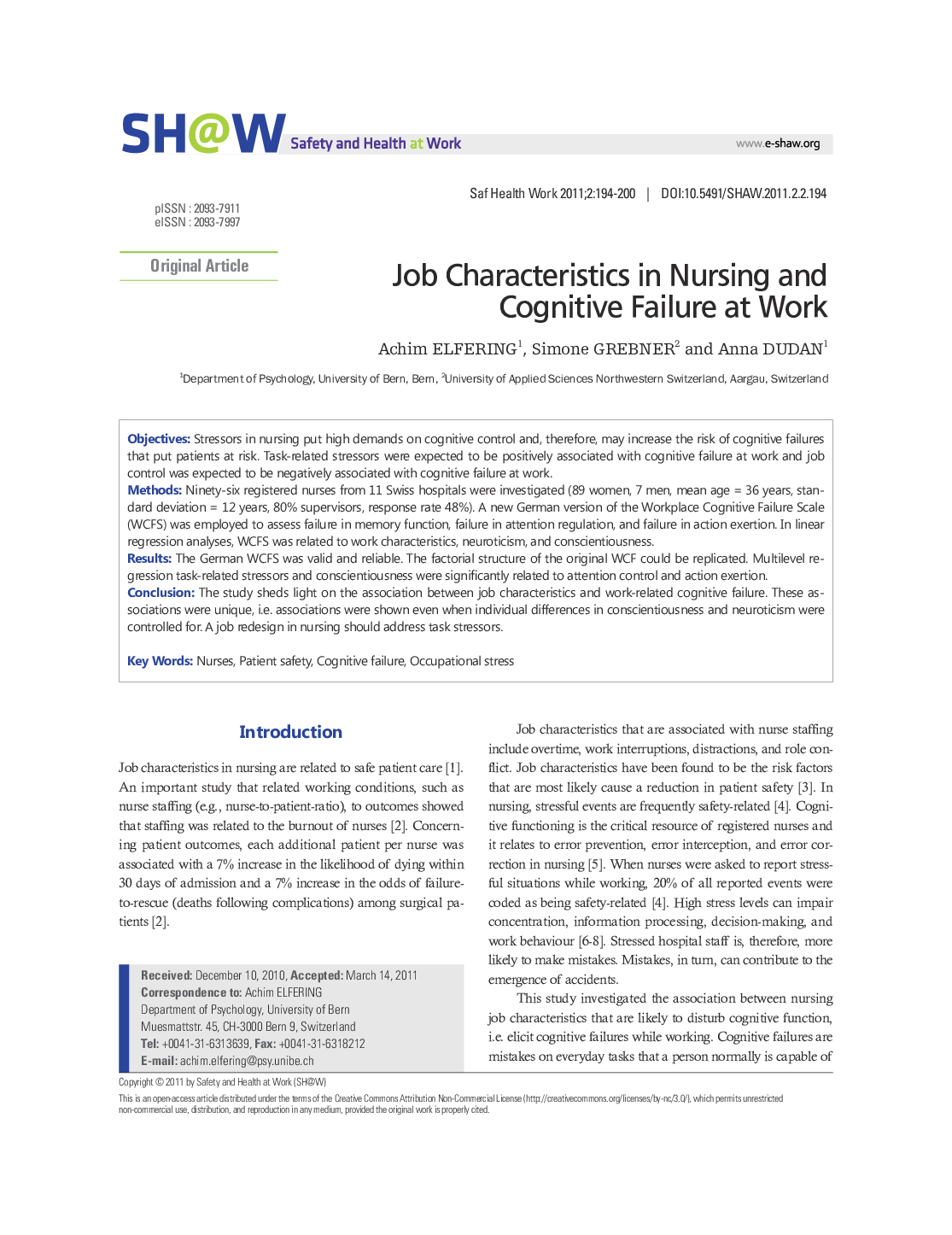| Article ID | Journal | Published Year | Pages | File Type |
|---|---|---|---|---|
| 1092282 | Safety and Health at Work | 2011 | 7 Pages |
Objectives: Stressors in nursing put high demands on cognitive control and, therefore, may increase the risk of cognitive failures that put patients at risk. Task-related stressors were expected to be positively associated with cognitive failure at work and job control was expected to be negatively associated with cognitive failure at work.Methods: Ninety-six registered nurses from 11 Swiss hospitals were investigated (89 women, 7 men, mean age = 36 years, standard deviation = 12 years, 80% supervisors, response rate 48%). A new German version of the Workplace Cognitive Failure Scale (WCFS) was employed to assess failure in memory function, failure in attention regulation, and failure in action exertion. In linear regression analyses, WCFS was related to work characteristics, neuroticism, and conscientiousness.Results: The German WCFS was valid and reliable. The factorial structure of the original WCF could be replicated. Multilevel regression task-related stressors and conscientiousness were significantly related to attention control and action exertion.Conclusion: The study sheds light on the association between job characteristics and work-related cognitive failure. These associations were unique, i.e. associations were shown even when individual differences in conscientiousness and neuroticism were controlled for. A job redesign in nursing should address task stressors.
